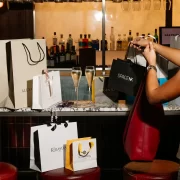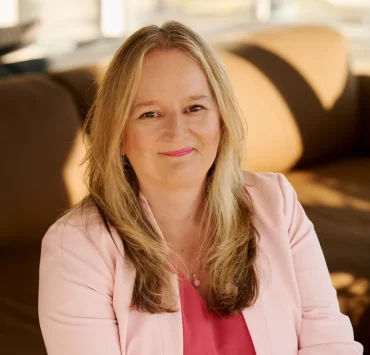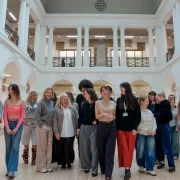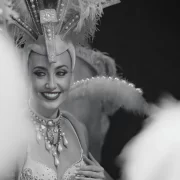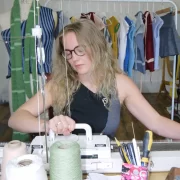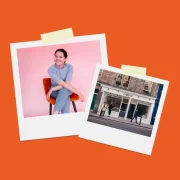“I’ve never believed that talent was connected to geography”: Claire Mundell on carving a career in TV without leaving Scotland
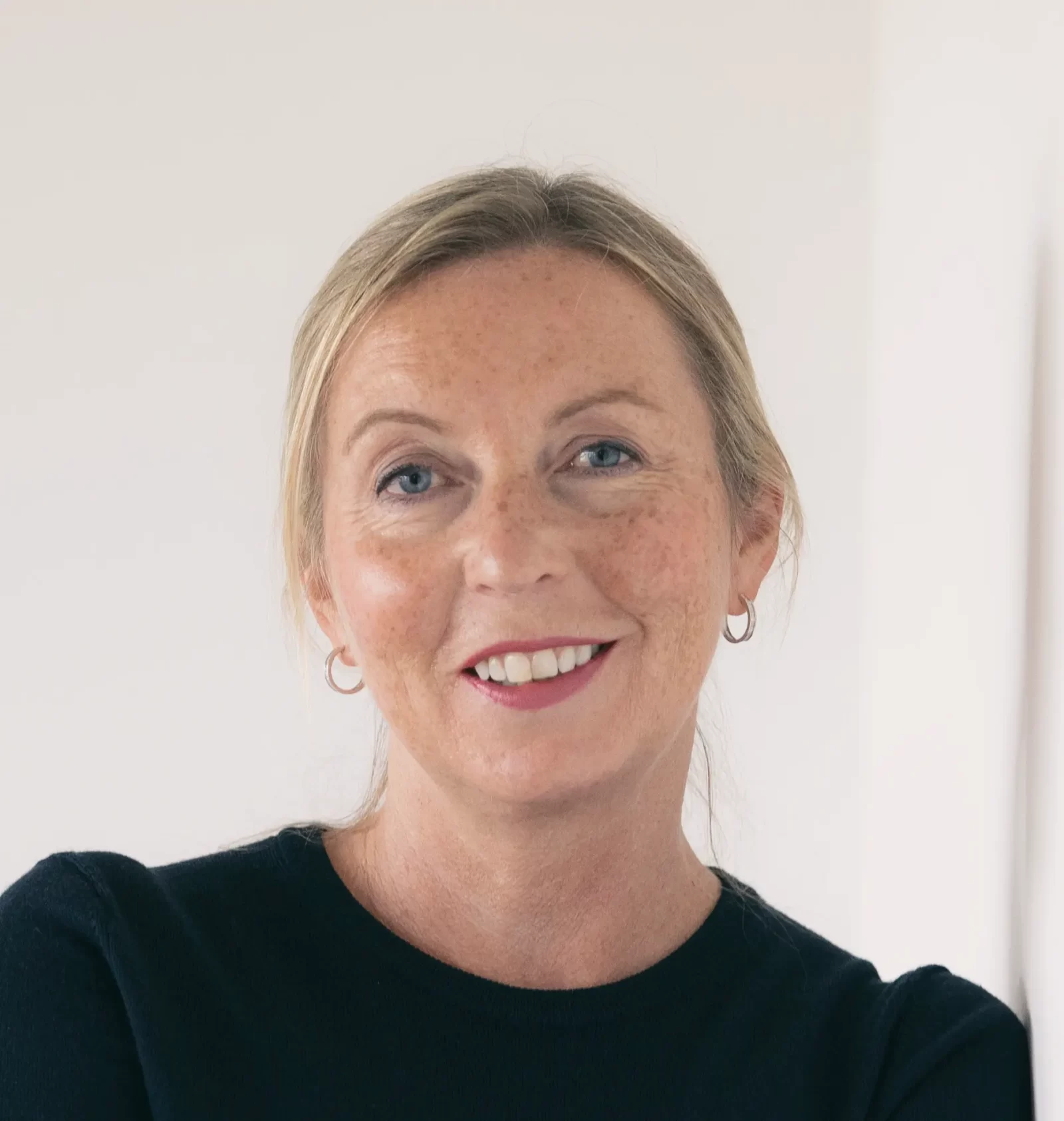
Over the past 10 years, Alice Hinds has written for…
Having worked on such acclaimed TV dramas as The Cry, Mayflies, and most recently The Tattooist of Auschwitz, producer Claire Mundell knows more than most what it takes to make it big in the entertainment industry.
After studying Film and Television with English Literature at the University of Strathclyde, Claire went on to become Head of CBBC Scotland, originating and producing various TV shows over 10 years – including fantasy favourite Shoebox Zoo – before branching out into developing scripts for TV and film.
In 2005, the self-described “purpose driven producer” founded Synchronicity Films, and her Glasgow-based office is now filled with coveted awards from the likes of BAFTA and the Royal Television Society.
Here, the talented filmmaker shares her advice for budding young creatives, who want to follow in her footsteps, working on some of the biggest shows on television – without moving away from Scotland.
From the BAFTA-winning BBC series The Cry, starring Jenna Coleman, to new star-studded drama, The Tattoost of Auschwitz, which took more than six years to make, you’ve spearheaded some of the biggest must-watch shows. What’s the secret to bringing series like that to life?
You need a lot of stamina and to not be dissuaded along the way. If you really believe in a project, and you really believe that the story has the ability to break out and connect with people, then you just have to keep going.
A lot of people will tell you no and the chances of getting things commissioned are slim – but I think if you’ve got a really good piece of work then it will attract people. That was evidenced in The Tattooist of Auschwitz, with the level of talent we managed to attract, including Hans Zimmer and Barbra Streisand. Something happens when you know the work is good. You can sell it all day long because you have that confidence inside you.
You grew up in Glasgow and now run your business from here, but work with some of the biggest names in TV and film around the world – do you think being based in Scotland gives you an edge?
Things are different than they were 20 odd years ago when I was starting out – there’s definitely an acceptance that network productions can exist outside of London. That has been a sea change and there are lots of projects to evidence it. But at the same time, there’s no doubt that you benefit by travelling. You have to accept that Glasgow is not London, and capital cities are the centre of things for a reason.
Base yourself wherever you like, but travel to places like London, New York, LA, and be out there in the world with your projects. Then people won’t really care where you’re based because they’re not talking to you because of that, they’re talking to you because of your project.
And it’s important to remember that nobody owes anybody anything. I think sometimes there can be a feeling of ‘why are we getting this’ and ‘why are we getting that’ – but nothing is automatic, you have to get out and work and earn it. If you do those things and you’re passionate – and you try not to be dissuaded by the rejections, which inevitably come – then you can get incredible work made anywhere.
Does living outside of London, for example, hinder your access to work in the film industry?
I’ve never believed that talent was connected to geography! I don’t think just because you live in a certain place, there’s inevitably more talent there than anywhere else. There’s talent everywhere.
For me, it’s about opportunity. Talent needs to get an opportunity in order to have a chance to flourish. And so, if you’re not close to an opportunity, you’ve got to find a way to get yourself close to an opportunity – then if you ever come back to your home city, wherever that might be, you’ve got the best of both worlds.
Plus, for our production company as Scots, when we’ve travelled to the US, we’ve instantly had something different to talk about than the other Brits – and that’s an advantage that everyone should play to! The world is open to us, we just have to go out there and show them what we’ve got.
With so many streaming services available now, there has been a huge boom in new television shows and films being made. Is now a good time to think about a career in the industry?
There has been a boom, but at the moment, we’re also on a downward trend from that boom, so it’s actually also a really hard time for a lot of freelancers and production companies. But that’s the nature of the industry – it’s going to constantly shift, shape itself and evolve.
If you’re coming into this industry, you need to come in with your eyes open. Come in ready for every eventuality – and be nice to everybody because you never know when you’re going to meet them again. You should also genuinely bring your work ethic to the table because hard work, and people who can sort things out without complaining, really stand out.
You also don’t necessarily have to come into the industry and be like, ‘Oh, I’m going to be this or I’m going to be that and that’s the only thing I can do’. Get some experience on the sort of production you think you might like, and then try to use that to find out what everybody else does. Think about your personality allied to the role that you want to do, and ask yourself if you have the right personality and interest and energy levels for that role. Or are you better suited to something else?
Do you have any other advice for succeeding in such a competitive career?
You’ve got to be open and receptive. Work hard, have a really good attitude, be nice, be respectful, and be informed.
There are lots of organisations out there who can help people coming into the industry, such as NFTS Scotland, Screen Scotland, GMAC Film, and BAFTA, and there’s lots of resources out there, too, so go out there and see all the different opportunities that exist for new entrants.
And also, watch the telly and see films and have an opinion about work. Someone’s going to ask you about that in an interview because they want to know what your taste is, and that you are actually watching what people are making.
Ask yourself how much you really want to do it because it could be a long road before you get things made – but if it’s what you really want to do, then you’ll have the commitment to stick with it.
For more information about Claire, Synchronicity Films and its up-coming projects, visit synchronicityfilms.co.uk.












